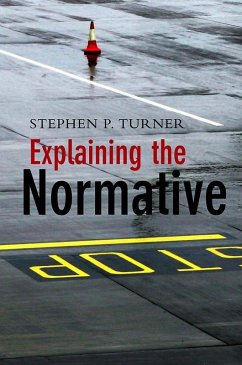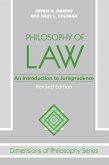Normativity is what gives reasons their force, makes words meaningful, and makes rules and laws binding. It is present whenever we use such terms as 'correct,' 'ought,' 'must,' and the language of obligation, responsibility, and logical compulsion. Yet normativists, the philosophers committed to this idea, admit that the idea of a non-causal normative realm and a body of normative objects is spooky. Explaining the Normative is the first systematic, historically grounded critique of normativism. It identifies the standard normativist pattern of argument, and shows how this pattern depends on circularities, assumptions about the unique correctness of preferred descriptions, problematic transcendental arguments, and regress arguments that end in mysteries.
The book considers in detail a paradigm case: legal normativity as constructed by Hans Kelsen. This case exemplifies the problems with normativist arguments. But it also shows how normativism was constructed as an alternative to ordinary social science explanation. The normativist argument is that social science explanations themselves are forced to rely on normative conceptsÑminimally, on normative rationality and on a normative view of 'concepts' themselves.
Empathic understanding of the reasoning and meanings of others, however, can solve the regress problems about meaning and rationality that are central to the appeal of normativism. This account has no need for a parallel normative world, and has a surprising and revealing lineage in the history of philosophy, as well as a basis in neuroscience.
The book considers in detail a paradigm case: legal normativity as constructed by Hans Kelsen. This case exemplifies the problems with normativist arguments. But it also shows how normativism was constructed as an alternative to ordinary social science explanation. The normativist argument is that social science explanations themselves are forced to rely on normative conceptsÑminimally, on normative rationality and on a normative view of 'concepts' themselves.
Empathic understanding of the reasoning and meanings of others, however, can solve the regress problems about meaning and rationality that are central to the appeal of normativism. This account has no need for a parallel normative world, and has a surprising and revealing lineage in the history of philosophy, as well as a basis in neuroscience.
Dieser Download kann aus rechtlichen Gründen nur mit Rechnungsadresse in D ausgeliefert werden.









